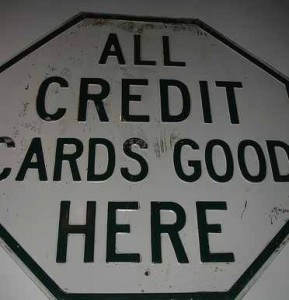While credit cards can, indeed, lead to the bondage of debt, they can also be great financial tools. How you use your credit card matters, and with the right approach, credit cards can help you improve your finances and better manage your cash flow.
As long as you pay your balance off each month, credit cards can be great for your finances. You can earn rewards, and you can ensure that you have the money you need in your bank account at all times. Integrate credit cards into your regular financial plan, and you might find that your personal economy runs more smoothly.
Find the credit card that fits your needs.
Integrating Credit Cards with Your Spending Plan
Your first step is to figure out how to use credit cardsas part of your spending plan. In order for this to work, though, you need to pay off your debt. If you are carrying a balance on your credit cards, you need to stop. Pay off your credit cards so that you can start fresh. You want to be able to keep your spending to within levels that allow you to pay off your credit card balance each month. Find the credit card that fits your needs.
Once you have your credit card debt paid off, you can begin integrating your credit cards with your spending plan. You still need a plan, and you can’t use credit cards (even cash back rewards cards) as an excuse to stop living within your means. Your spending on your cards should reflect your financial goals and regular expenses. Some of the items you can put on your credit card as part of your monthly spending plan include:
- Utility payments
- Recurring bills, such as subscriptions and Internet service
- Groceries
- Gas
- Online purchases
- Other regular purchases
- Big ticket items that you have saved up for
Putting these items on your credit card each month can help you stay on top of your expenses, as well as help you rack up rewards points that can help you earn free travel, merchandise, and even cash back. Plus, putting your expenses on your credit card can also help you manage your cash flow.
Managing Your Cash Flow with Credit Cards
The way your money moves through your personal economy is cash flow. Managing your cash flow is important, since proper cash flow management can mean the difference between overdrawing your account and having a cushion at the end of the month. If you have all of your bills due at the beginning of the month, but you are paid twice a month, without carefully managing your cash flow, you could end up running out of money in your account before your next pay day.
Credit cards can help you manage your cash flow, though, since you can put everything on your cards, and then pay them off at the end of the month — after you’ve had the whole month for your pay to pile up. This can be especially helpful if you have irregular income.
More on Credit Cards
I have irregular income as a freelancer. Even the money my husband makes is irregular, since he is an adjunct professor. While I have regular gigs that I can count on, when the money ends up in the bank account is not always the same month-to-month. Sometimes PayPal takes three business days to transfer funds, and sometimes it’s four. Other times, a client might pay a little later than usual. I’m never entirely sure when funds will be available for my use.
However, I have bills. I have a car payment, a mortgage payment, and automatic transfers to a savings account, and to my tax-advantaged retirement account. If a couple of clients are slow, my account could be overdrawn with these automatic transactions. This is where the credit cards come in.
Instead of worrying about cash flow, and whether or not the money will be in the account, I use credit cards. My cable bill, my produce and milk delivery bill, and other recurring bills are scheduled to be paid with credit card. I also make online purchases, buy groceries, and pay for gas using credit cards. That way, there is plenty of money in the checking account when the loans are paid, or the retirement contributions are made.
At the end of the month, as long as we have kept to our spending plan, there is plenty of money in the checking account to pay off the money spent on credit cards during the month. This helps our cash flow, and it also allows us to earn rewards faster. Plus, if you keep your money in an interest-bearing account for the month, you can even earn a few extra dollars.
Miranda is freelance journalist. She specializes in topics related to money, especially personal finance, small business, and investing. You can read more of my writing at Planting Money Seeds.

